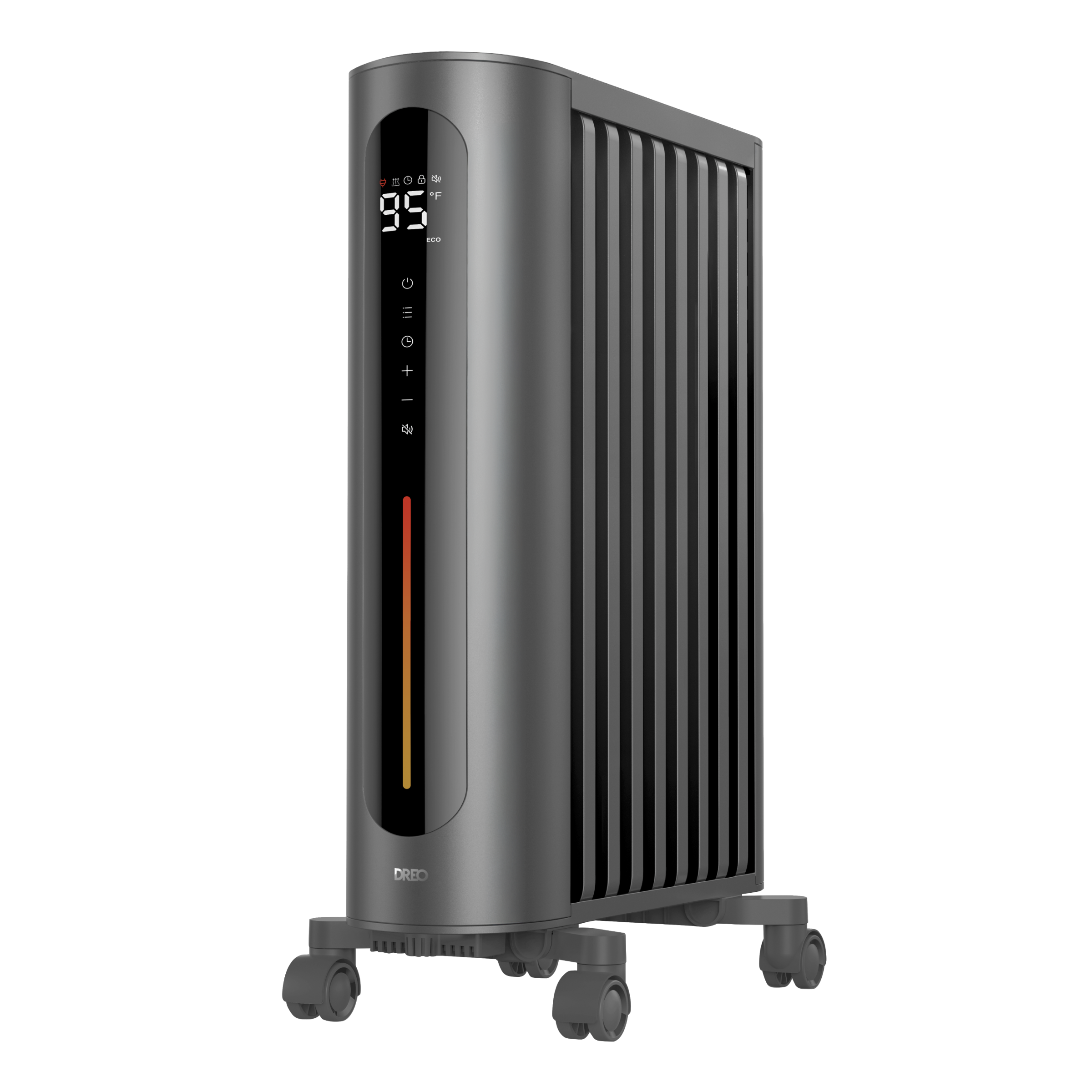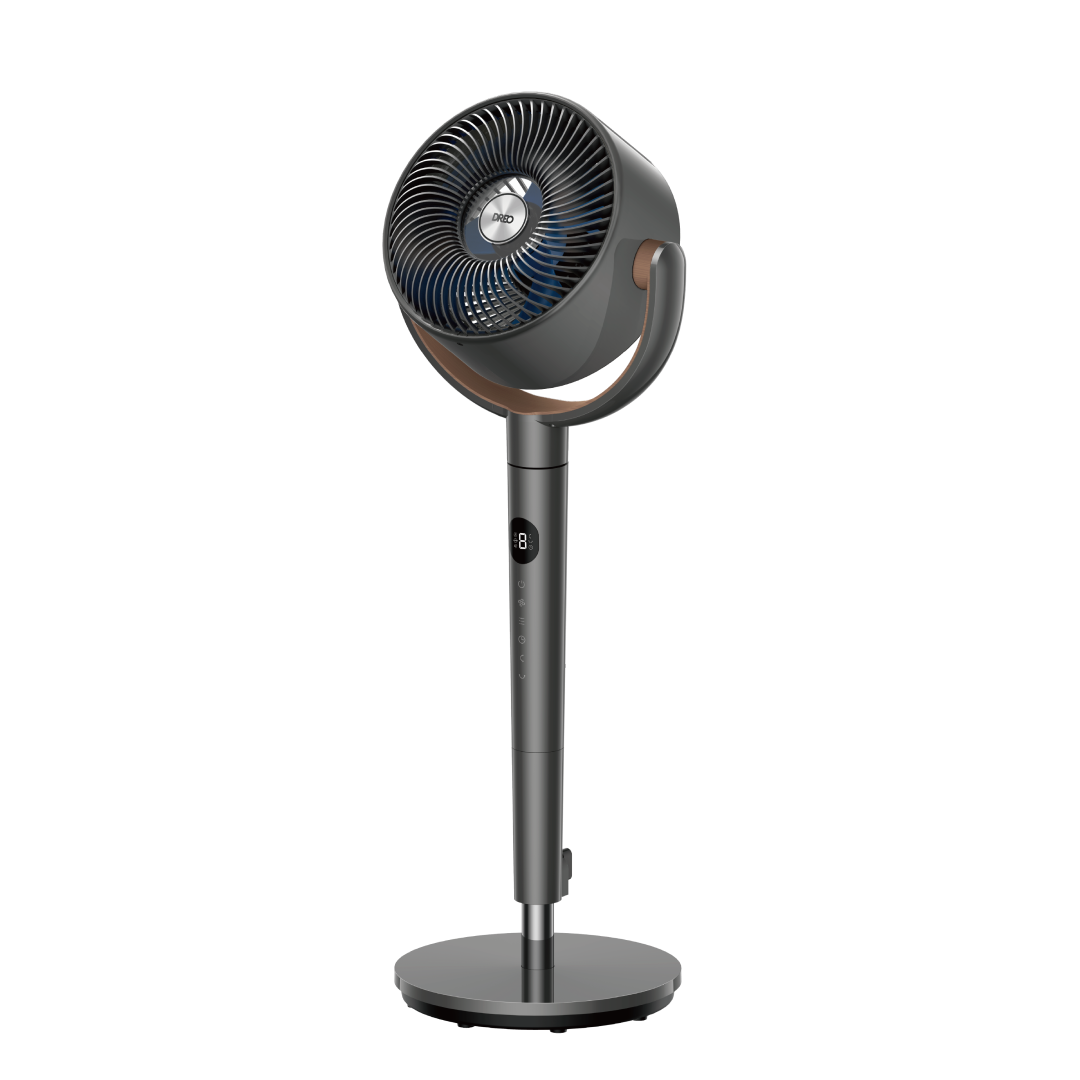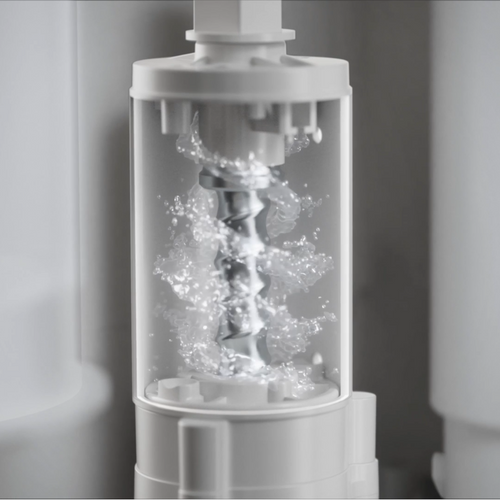A humidifier is a device that increases the humidity in your home by using evaporative action.
People with allergies are often advised to use a humidifier, but what’s the connection between allergies and humidity? And can a humidifier really help with allergy symptoms?
The short answer is yes, humidifiers can help with allergies, when used correctly. Humidity keeps your throat and nasal passages moist, which is important because dryness in these areas can worsen allergy symptoms. A humidifier adds moisture to the air, preventing the dryness that can cause discomfort.
Of course, this is a simplified explanation. To fully understand how a humidifier can help, let’s first explore how air humidity is connected to allergies in more detail.

How Allergies and Air Humidity Are Connected
Allergies can be triggered by a variety of allergens, substances that cause an allergic reaction in sensitive individuals. Some of the most common air allergens include:
Dust: One of the most common allergens that a lot of people are allergic to. It causes irritation in the nasal passage which can cause inflammation. In the worst cases, it can even cause people to sneeze and wheeze very badly. Dust particles carry dust mites, mould, pollen, and pet dander.
Pollen: Plant pollen is another big allergen and can cause your allergies to act up. This is usually because your immune system considers pollen to be dangerous and releases countermeasures against it. This in return causes allergic reactions in your body.
Animal Dander: Animal dander consists of proteins found in pet saliva, skin flakes, and urine. These proteins can cause allergic reactions when they’re inhaled or come into contact with the skin.
The humidity in the air can alleviate the symptoms of allergies. It makes the air comfortable to breathe, as humid air is less harsh than dry air.

How Humidifiers Help with Allergies
Living in dry environments can worsen allergy symptoms, as the lack of moisture in the air often irritates the nasal passages and throat. While relocating to a more humid area may not be an option for everyone, a humidifier offers a practical solution.
When the air is humidified, it becomes easier to breathe, as it’s less harsh on the sinus and throat passages. Additionally, dust particles, which are common allergens, tend to settle in humid air rather than floating around. This can help reduce allergy flare-ups.
Humidifiers are also beneficial for individuals with asthma or hay fever, as they help maintain a more comfortable and breathable environment.
All this makes humidifiers an affordable and effective option, often available for under $100. Many modern models even feature smart functionality, allowing you to adjust humidity levels for optimal comfort in your home.
Choosing the Right Humidifier for Allergy Relief

Choosing the right humidifier can be tricky because you want one that does not only keep the air humid but also maintains the humidity levels in your house.
As we discussed earlier, you need to have about a certain percentage of humidity in your air for it to be comfortable and helpful for your allergies. The Smart Humidifier HM713S 6L is perfect for such cases.
The model comes with built-in smart functionality that maintains the moisture levels in your house. Not only that, but it also gives you reminders to clean up the humidifier every 30 days.
The best thing? It is very affordable, you can see the prices on the official DREO website.
Tips for Using a Humidifier to Help with Allergies
To get the most out of your humidifier for allergy relief, here are some simple tips:
Adjust the humidity levels: A balanced humidity level (ideally 30-50%) is key. Too much humidity can make the air feel heavy and uncomfortable, so monitor the humidity and adjust it to suit your space.
Regularly clean your humidifier: Clean your humidifier often to avoid mold and bacteria buildup. Dirty humidifiers can worsen allergies, so make sure to follow the manufacturer’s cleaning instructions.
Keep it at the right distance: Make sure your humidifier is placed at least 2-3 feet away from furniture and walls. This ensures the mist doesn’t settle on surfaces and helps maintain good airflow.
Place it in a well-ventilated area: For the best results, keep your humidifier in a space with good airflow. This helps prevent moisture from building up too much in one area, keeping the air fresh and comfortable.
For more tips on how to place your humidifier for maximum effectiveness, check out our article on: Where Should a Humidifier Be Placed in a Room.
Key Takeaways
Allergies can be incredibly frustrating, affecting your daily routine and making it hard to get a good night’s sleep.
The constant discomfort can leave you feeling drained and restless throughout the day.
Thankfully, a humidifier can provide much-needed relief without breaking the bank.
It’s a simple and effective way to ease symptoms of allergies, asthma, and hay fever, helping to make your environment more comfortable to breathe in.
Ready to breathe easier? Explore DREO’s range of humidifiers today and find the perfect model to help alleviate your allergy symptoms and improve your indoor air quality!
FAQs
Does humidifier help with asthma?
Yes, a humidifier can help with asthma by keeping the airways moist and preventing them from drying out, which can trigger asthma symptoms. Moist air can make it easier to breathe and reduce irritation in the airways.
Should you use a humidifier if you have allergies?
Yes, using a humidifier can help alleviate allergy symptoms by keeping your nasal passages and throat moist. This reduces irritation and dryness that can worsen allergies.
Is a humidifier better for allergies than air purifier?
No, a humidifier only improves the humidity levels in the air. An air purifier can remove pollutants from the air like mould, dust, and dust mites that are allergens. Use a combination of air purifier and humidifier for the best possible results.
Just remember, if you’re using them together, try to keep the humidifier away from the air purifier. Otherwise, the purifier might falsely detect more particles in the air because of the added moisture. This way, both devices can work effectively for your allergies.
*The humidifier is not intended for use as a medical device. Please use it with care.














































